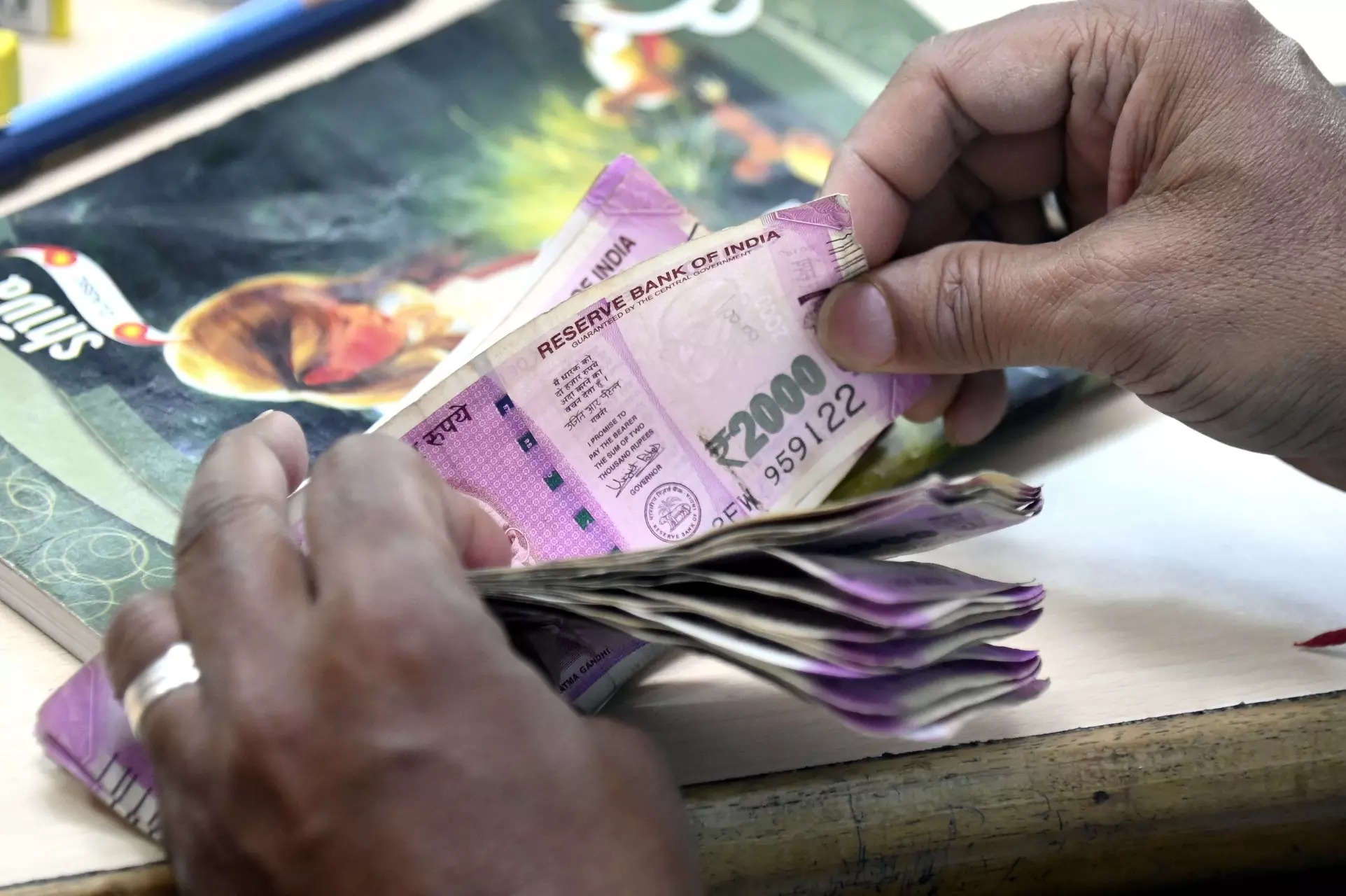NEW DELHI: The withdrawal of Rs 2,000 banknotes is likely to be a non-event as India has adopted digital payments on a mass scale, said SBI Research in its latest Ecowrap.
In digital payments, India has been witnessing new milestones, in both value and volume terms, which indicate the robustness of our payment ecosystem and acceptance.
“Our research suggests that Rural and Semi-Urban areas are now accounting for 60 per cent of share in UPI value/volume, dismantling the popular perception that metro/urban areas are hotbeds of digital payment adoption and innovations,” the Ecowrap report authored by Soumya Kanti Ghosh, Group Chief Economic Adviser, said.
The report said the Rs 500 note has become the major bank note among the masses and constituted 73.3 per cent of the total value of currency notes as of March.
According to SBI Research, the central bank RBI has ensured that the share of the high-value Rs 2000 note moved down gradually, thus paving the way for the removal from circulation altogether.
The total value of these banknotes in circulation has declined from Rs 6.73 lakh crore at its peak in March 31, 2018 (37.3 per cent of Notes in Circulation) to Rs 3.62 lakh crore constituting only 10.8 per cent of Notes in Circulation on March 31, 2023, RBI said. About 89 per cent of the Rs 2000 denomination banknotes were issued prior to March 2017 and are at the end of their estimated life span of four-five years.
According to RBI, the objective of introducing Rs 2000 banknotes was met once banknotes in other denominations became available in adequate quantities. Therefore, the printing of Rs 2000 banknotes was stopped subsequently in 2018-19.
The Reserve Bank of India (RBI) on Friday decided to withdraw the Rs 2000 denomination currency notes from circulation, but added they will continue to remain as legal tender. RBI had also advised banks to stop issuing Rs 2000 denomination banknotes with immediate effect.
RBI, however, said that citizens will continue to be able to deposit Rs 2000 banknotes into their bank accounts and/or exchange them into banknotes of other denominations at any bank branches up to September 30, 2023.
In digital payments, India has been witnessing new milestones, in both value and volume terms, which indicate the robustness of our payment ecosystem and acceptance.
“Our research suggests that Rural and Semi-Urban areas are now accounting for 60 per cent of share in UPI value/volume, dismantling the popular perception that metro/urban areas are hotbeds of digital payment adoption and innovations,” the Ecowrap report authored by Soumya Kanti Ghosh, Group Chief Economic Adviser, said.
The report said the Rs 500 note has become the major bank note among the masses and constituted 73.3 per cent of the total value of currency notes as of March.
According to SBI Research, the central bank RBI has ensured that the share of the high-value Rs 2000 note moved down gradually, thus paving the way for the removal from circulation altogether.
The total value of these banknotes in circulation has declined from Rs 6.73 lakh crore at its peak in March 31, 2018 (37.3 per cent of Notes in Circulation) to Rs 3.62 lakh crore constituting only 10.8 per cent of Notes in Circulation on March 31, 2023, RBI said. About 89 per cent of the Rs 2000 denomination banknotes were issued prior to March 2017 and are at the end of their estimated life span of four-five years.
According to RBI, the objective of introducing Rs 2000 banknotes was met once banknotes in other denominations became available in adequate quantities. Therefore, the printing of Rs 2000 banknotes was stopped subsequently in 2018-19.
The Reserve Bank of India (RBI) on Friday decided to withdraw the Rs 2000 denomination currency notes from circulation, but added they will continue to remain as legal tender. RBI had also advised banks to stop issuing Rs 2000 denomination banknotes with immediate effect.
RBI, however, said that citizens will continue to be able to deposit Rs 2000 banknotes into their bank accounts and/or exchange them into banknotes of other denominations at any bank branches up to September 30, 2023.


